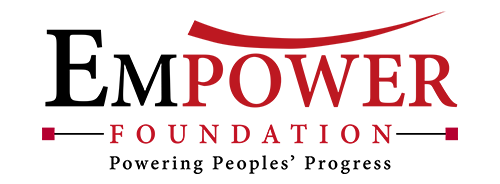BADLAAV
Target beneficiaries of Badlaav
The Objective
Empower Foundation aims to achieve the following objectives through this intervention
Some of the other major outcomes of the project are:
- Evoking interest in learning
- Being independent
- Being confident
- Improvement in learning ability
- Knowing the surroundings
- Effective communication skills
The Pillars Of Model

Crucial themes incorporated under functional literacy module
The content can be broadly classified into four parts:

